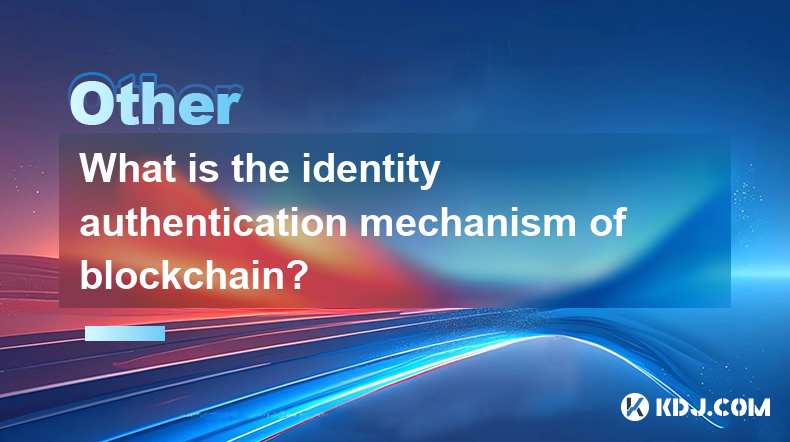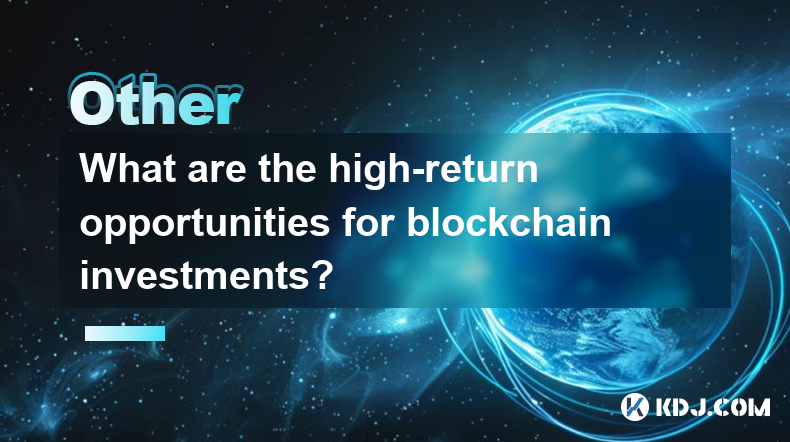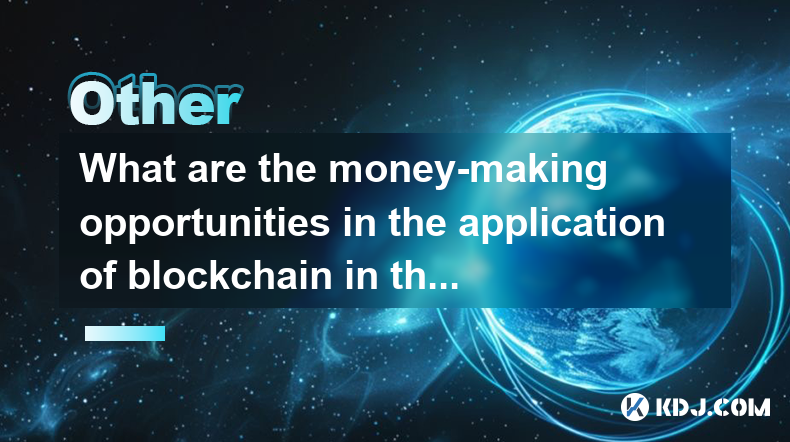-
 Bitcoin
Bitcoin $83,438.1766
0.92% -
 Ethereum
Ethereum $1,803.5224
0.96% -
 Tether USDt
Tether USDt $0.9998
0.03% -
 XRP
XRP $2.1693
5.40% -
 BNB
BNB $596.4287
1.39% -
 Solana
Solana $119.8047
3.86% -
 USDC
USDC $1.0001
0.01% -
 Dogecoin
Dogecoin $0.1702
4.03% -
 Cardano
Cardano $0.6607
3.91% -
 TRON
TRON $0.2365
-0.86% -
 Chainlink
Chainlink $12.8962
2.78% -
 UNUS SED LEO
UNUS SED LEO $8.9457
-4.61% -
 Toncoin
Toncoin $3.2914
-2.80% -
 Stellar
Stellar $0.2574
0.48% -
 Avalanche
Avalanche $18.2528
1.50% -
 Sui
Sui $2.2547
3.44% -
 Shiba Inu
Shiba Inu $0.0...01228
1.52% -
 Hedera
Hedera $0.1620
1.28% -
 Litecoin
Litecoin $83.1893
0.92% -
 Polkadot
Polkadot $3.9691
-1.51% -
 MANTRA
MANTRA $6.2531
-0.59% -
 Bitcoin Cash
Bitcoin Cash $302.8680
1.47% -
 Bitget Token
Bitget Token $4.5061
0.37% -
 Dai
Dai $1.0002
0.02% -
 Ethena USDe
Ethena USDe $0.9991
-0.04% -
 Pi
Pi $0.6709
29.03% -
 Monero
Monero $216.8851
0.73% -
 Hyperliquid
Hyperliquid $11.8914
6.11% -
 Uniswap
Uniswap $5.8813
1.97% -
 OKB
OKB $51.4130
8.48%
What is the identity authentication mechanism of blockchain?
Blockchain identity authentication uses cryptography, not central authorities, employing methods like public key cryptography and zero-knowledge proofs to balance security, scalability, and privacy, depending on the application's needs.
Mar 21, 2025 at 01:49 am

Key Points:
- Blockchain identity authentication relies on cryptographic techniques rather than centralized authorities.
- Several methods exist, each with strengths and weaknesses regarding security, scalability, and privacy.
- Understanding these methods is crucial for navigating the complexities of secure blockchain transactions and decentralized applications (dApps).
- The choice of authentication method depends heavily on the specific application's requirements.
What is the Identity Authentication Mechanism of Blockchain?
Blockchain technology, at its core, is designed to be decentralized and trustless. This means it doesn't rely on a central authority to verify identities. Instead, it employs sophisticated cryptographic methods to ensure the authenticity and integrity of transactions and participants. Unlike traditional systems where a central database holds personal information, blockchain distributes this information across a network of computers, making it more resilient to attacks. This distributed nature, however, necessitates robust identity authentication mechanisms.
Methods of Identity Authentication on the Blockchain
Several methods facilitate identity authentication on a blockchain. Each approach balances security, scalability, and privacy differently. Understanding these trade-offs is critical for selecting the appropriate method for a given application.
- Public Key Cryptography: This is the foundational authentication method in most blockchains. Each user possesses a pair of keys: a public key and a private key. The public key is shared openly, while the private key must remain secret. Transactions are signed using the private key, and anyone can verify the signature using the corresponding public key. This ensures only the owner of the private key can authorize transactions.
- Zero-Knowledge Proofs (ZKPs): ZKPs allow users to prove their identity or knowledge of specific information without revealing the information itself. This is vital for preserving privacy. For instance, a user might prove they are over 18 years old without disclosing their exact age. ZKPs are computationally intensive but offer strong privacy guarantees.
- Digital Signatures: These are cryptographic techniques that verify the authenticity and integrity of data. Digital signatures are essential for confirming the origin and preventing tampering with transactions. They act as a tamper-evident seal for each transaction on the blockchain.
- Multi-Factor Authentication (MFA): While not strictly a blockchain-specific method, MFA enhances security by requiring multiple forms of authentication. This could include a password, a one-time code from an authenticator app, or biometric verification. MFA adds an extra layer of protection against unauthorized access.
- Identity Management Systems: These systems manage and verify identities on the blockchain. They often incorporate various authentication methods, including those listed above, to provide a comprehensive solution. These systems are crucial for managing large numbers of users and complex identities.
Challenges and Considerations in Blockchain Identity Authentication
Implementing secure and efficient identity authentication on a blockchain presents several challenges.
- Scalability: Verifying identities for millions of users can strain network resources. Solutions often involve techniques like sharding or layer-2 scaling solutions to handle the increased load.
- Privacy: Balancing the need for secure authentication with the preservation of user privacy is a crucial challenge. Techniques like ZKPs are crucial in mitigating this trade-off.
- Security: The security of the entire system relies on the security of the individual authentication methods. Robust cryptographic algorithms and secure key management are paramount.
- Interoperability: Different blockchains often use different authentication methods, making it difficult to share identities across different platforms. Standardization efforts are underway to address this issue.
- User Experience: Complex authentication processes can deter users. Striking a balance between security and user-friendliness is essential for widespread adoption.
Specific Implementations and Examples
Several projects are actively working on improving blockchain identity authentication. These initiatives explore various combinations of the methods mentioned above to create robust and scalable solutions. Some projects focus on decentralized identity (DID) solutions, aiming to give users more control over their digital identities. Others leverage blockchain technology to improve existing identity management systems, making them more secure and transparent. The evolution of blockchain identity authentication is ongoing, with new approaches and techniques continually emerging.
Common Questions and Answers
Q: How secure is blockchain identity authentication compared to traditional systems?
A: Blockchain authentication, when implemented correctly, offers significantly enhanced security due to its decentralized and cryptographic nature. It is more resistant to single points of failure and data breaches common in centralized systems. However, the security depends heavily on the implementation and the strength of the chosen cryptographic methods.
Q: What are the privacy implications of blockchain identity authentication?
A: The privacy implications vary depending on the specific method used. Public key cryptography, while secure, reveals the transaction history linked to a public key. ZKPs offer stronger privacy protection by allowing verification without revealing sensitive information. Careful consideration of privacy implications is essential when selecting an authentication method.
Q: Can blockchain identity authentication be used outside of cryptocurrency transactions?
A: Absolutely. Blockchain-based identity solutions are finding applications in various sectors, including supply chain management, voting systems, digital identity verification, and access control. The decentralized and secure nature of blockchain makes it attractive for many identity-related applications.
Q: What are the future trends in blockchain identity authentication?
A: Future trends include increased adoption of ZKPs for enhanced privacy, greater interoperability between different blockchain systems, and more user-friendly interfaces. We can also expect to see more integration with existing identity management systems and further development of decentralized identity (DID) solutions.
Disclaimer:info@kdj.com
The information provided is not trading advice. kdj.com does not assume any responsibility for any investments made based on the information provided in this article. Cryptocurrencies are highly volatile and it is highly recommended that you invest with caution after thorough research!
If you believe that the content used on this website infringes your copyright, please contact us immediately (info@kdj.com) and we will delete it promptly.
- title: GameStop Completes $1.5B Fundraising Round to Invest in Bitcoin
- 2025-04-05 20:20:13
- South Korea's 7-Eleven stores will accept payments in the country's central bank digital currency (CBDC)
- 2025-04-05 20:20:13
- VanEck Proposes First BNB ETF in the U.S.
- 2025-04-05 20:15:12
- South Korean company launches 'political meme coins' to gauge public sentiment during impeachment trial
- 2025-04-05 20:15:12
- Despite Market Slowdown, DeFi Lending Continues to Be One of the Most Active App Types
- 2025-04-05 20:10:12
- The XRPTurbo presale has officially sold out, securing over 300000 XRP in under 30 days
- 2025-04-05 20:10:12
Related knowledge

Is the ranking of Chinese blockchain apps real and reliable?
Apr 04,2025 at 09:01pm
The ranking of Chinese blockchain apps has become a topic of interest for many in the cryptocurrency community, as it provides insights into the popularity and adoption of blockchain technology within China. However, the reliability and authenticity of these rankings are often questioned. This article aims to delve into the factors that influence these ...

What are the future development trends of blockchain game development?
Apr 03,2025 at 05:00am
Blockchain technology has revolutionized various industries, and gaming is no exception. As we look to the future, several trends are set to shape the development of blockchain games. These trends not only promise to enhance the gaming experience but also to integrate blockchain technology more seamlessly into the gaming ecosystem. Let's explore these t...

What are the high-return opportunities for blockchain investments?
Apr 05,2025 at 02:35pm
Blockchain technology has revolutionized the financial world, offering numerous high-return investment opportunities. These opportunities span various sectors within the cryptocurrency ecosystem, including cryptocurrencies, decentralized finance (DeFi), non-fungible tokens (NFTs), and blockchain startups. Each of these areas presents unique risks and re...

What are the maintenance costs of blockchain system development?
Apr 03,2025 at 06:07pm
The maintenance costs of blockchain system development are multifaceted and depend on various factors. These costs can include technical maintenance, security updates, infrastructure expenses, and personnel costs. Understanding these elements is crucial for anyone planning to develop or maintain a blockchain system. Technical MaintenanceTechnical mainte...

What are the money-making models of blockchain games?
Apr 04,2025 at 02:00pm
Blockchain games have emerged as a revolutionary way for players to earn real money while enjoying their favorite pastime. These games leverage the power of blockchain technology to create unique money-making models that benefit both the players and the developers. In this article, we will explore the various money-making models of blockchain games and ...

What are the money-making opportunities in the application of blockchain in the medical industry?
Apr 03,2025 at 03:35am
The integration of blockchain technology into the medical industry presents a myriad of money-making opportunities that can revolutionize healthcare systems. Blockchain's inherent characteristics, such as transparency, security, and immutability, make it an ideal solution for various medical applications. By leveraging blockchain, companies can develop ...

Is the ranking of Chinese blockchain apps real and reliable?
Apr 04,2025 at 09:01pm
The ranking of Chinese blockchain apps has become a topic of interest for many in the cryptocurrency community, as it provides insights into the popularity and adoption of blockchain technology within China. However, the reliability and authenticity of these rankings are often questioned. This article aims to delve into the factors that influence these ...

What are the future development trends of blockchain game development?
Apr 03,2025 at 05:00am
Blockchain technology has revolutionized various industries, and gaming is no exception. As we look to the future, several trends are set to shape the development of blockchain games. These trends not only promise to enhance the gaming experience but also to integrate blockchain technology more seamlessly into the gaming ecosystem. Let's explore these t...

What are the high-return opportunities for blockchain investments?
Apr 05,2025 at 02:35pm
Blockchain technology has revolutionized the financial world, offering numerous high-return investment opportunities. These opportunities span various sectors within the cryptocurrency ecosystem, including cryptocurrencies, decentralized finance (DeFi), non-fungible tokens (NFTs), and blockchain startups. Each of these areas presents unique risks and re...

What are the maintenance costs of blockchain system development?
Apr 03,2025 at 06:07pm
The maintenance costs of blockchain system development are multifaceted and depend on various factors. These costs can include technical maintenance, security updates, infrastructure expenses, and personnel costs. Understanding these elements is crucial for anyone planning to develop or maintain a blockchain system. Technical MaintenanceTechnical mainte...

What are the money-making models of blockchain games?
Apr 04,2025 at 02:00pm
Blockchain games have emerged as a revolutionary way for players to earn real money while enjoying their favorite pastime. These games leverage the power of blockchain technology to create unique money-making models that benefit both the players and the developers. In this article, we will explore the various money-making models of blockchain games and ...

What are the money-making opportunities in the application of blockchain in the medical industry?
Apr 03,2025 at 03:35am
The integration of blockchain technology into the medical industry presents a myriad of money-making opportunities that can revolutionize healthcare systems. Blockchain's inherent characteristics, such as transparency, security, and immutability, make it an ideal solution for various medical applications. By leveraging blockchain, companies can develop ...
See all articles



















































































